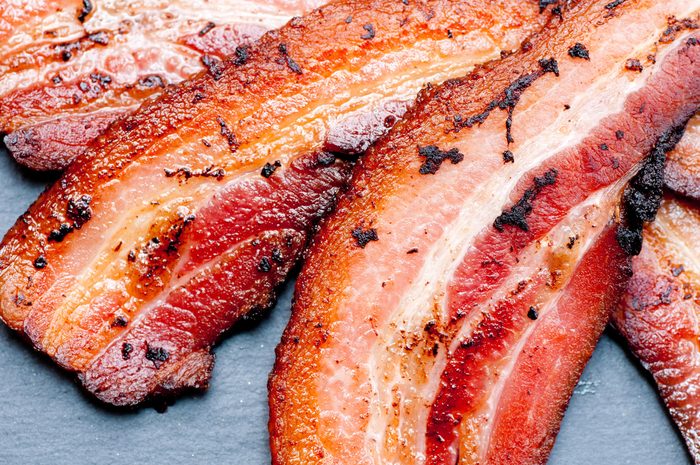
Processed meats
At the top of the list of cancer-causing foods is processed meats, which the World Health Organization has put in the same category as smoking and asbestos when it comes to cancer risk. On WHO’s no-no list are sausage, bacon, hot dogs, and ham because of an increased risk of colorectal cancer. Eating just 50 grams of processed meat each day (that’s around two slices of ham) can increase the risk of colon cancer by 18 percent, according to the report. The problem comes not just from the meat itself but from the main methods of processing it, which include smoking, curing, or adding salt or preservatives. When certain meats are cooked, sodium nitrites combine with natural amines in the meat to form cancer-causing N-nitroso compounds.
“I avoid smoked foods due to nitrates,” says Ioana Bonta, MD, a medical oncologist at Cancer Treatment Centers of America at Southeastern Regional Medical Center in Newnan, Georgia. You’ll also want to try these 12 healthy habits if you’re wondering how to prevent cancer of the colon.

Farmed salmon
Sure, it’s cheaper than the wild-caught stuff, but farmed salmon has higher levels of potentially cancer-causing contaminants. On average, farmed salmon has 16 times the polychlorinated biphenyls (PCBs) found in wild salmon, four times the levels in beef, and 3.4 times the PCBs found in other seafood, the Environmental Working Group reports. Instead, “choose wild-caught salmon and bake it with extra virgin heart-healthy olive oil,” suggests Steven G. Eisenberg, DO, an oncologist at the California Cancer Associates for Research and Excellence in San Diego. Salmon is rich in healthy fats known as omega-3 fatty acids, help control inflammation and possibly weight. Obesity is a major risk factor for many cancers.
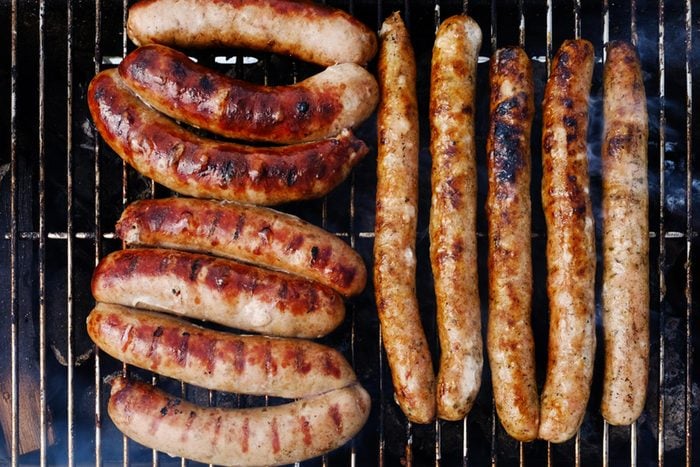
Charred meats
Crazy-high temperatures used in the grilling process produce cancer-causing heterocyclic aromatic amines and polycyclic aromatic hydrocarbons, which are carcinogenic. Dr. Eisenberg won’t eat any red meat—ever—focusing instead on plant-based proteins and fish. Dr. Bonta eats small amounts of red meat but cooks it carefully. “I don’t believe in grilling red meat because … the heme iron and charcoal also have cancer-causing agents,” she says. This doesn’t mean you have to give up on grilling altogether. Check out 7 healthy grilling tips that can reduce your risk of cancer.
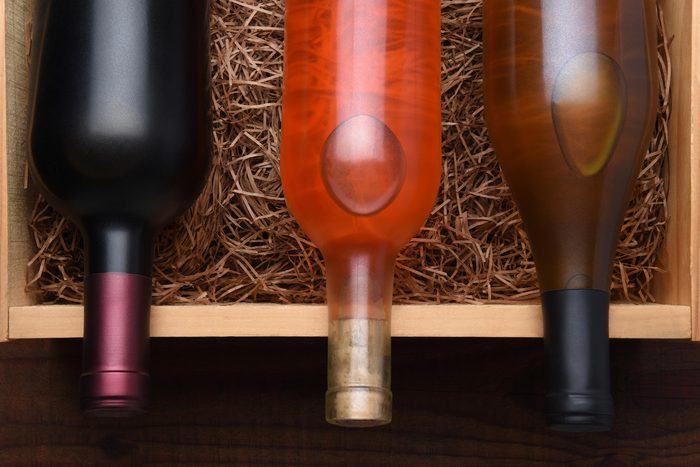
Excessive amounts of alcohol
Dr. Eisenberg is a teetotaler. In fact, he hasn’t had even a sip of alcohol since his college days. “The research linking alcohol to cancer risk is strong,” he says. Clear patterns have emerged between alcohol consumption and the development of head and neck cancers, esophageal cancer, liver cancer, breast, and colon cancer, according to the National Cancer Institute. The link is less clear with other types of cancer. “Numerous studies have examined the association between alcohol consumption and the risk of other cancers, including cancers of the pancreas, ovary, prostate, stomach, uterus, and bladder,” Dr. Eisenberg adds, noting that either they’ve found no association or the evidence is inconsistent. If you’re not ready to completely cut out this member of the cancer-causing foods list, cutting back can be a good small step. Read about 9 more surprising causes of cancer you should know about.
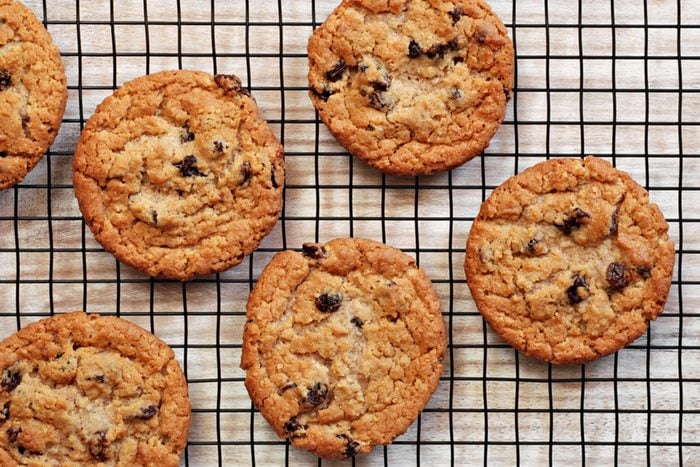
Trans fats
Trans fats are formed when manufacturers turn liquid oils into solid fats, in a process called hydrogenation, which increases the shelf life and flavor stability of foods. They can be found in a laundry list of foods, including vegetable shortening, margarine, crackers, cereals, candies, baked goods, cookies, granola bars, chips, snack foods, salad dressings, fats, fried foods, and many other foods. “Just say no. No. No. No. No,” Dr. Eisenberg says. “I don’t eat any trans fats ever.” These fats increase inflammation are closely linked to soaring obesity rates, he says. The FDA has now banned partially hydrogenated oils (PHOs), which are the major source of artificial trans fats in the food supply. Food manufacturers were given three years to remove PHOs from their products in 2015, but the FDA recently extended some of these compliance dates to 2019-2021. These 30 foods are proven to help prevent cancer.
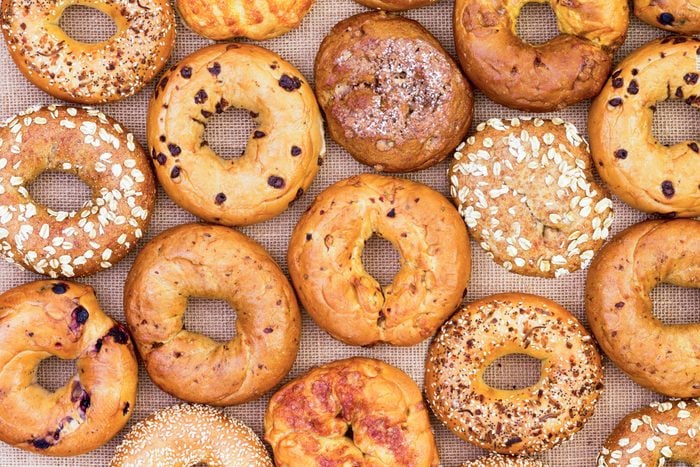
Bagels
Yes, bagels are delicious, but they’re also one of those white foods that send your blood sugar soaring. Consuming foods with a high glycemic index (those that rapidly elevate blood sugar levels) was found to raise the risk of lung cancer in non-Hispanic whites, according to a study from the University of Texas MD Anderson Cancer Center. High-GI foods include white bread and bagels, corn flakes, and puffed rice. Instead, choose lower GI foods such as brown rice, whole-wheat bread, and steel-cut oatmeal. Here are 15 other things cancer doctors do to prevent cancer.
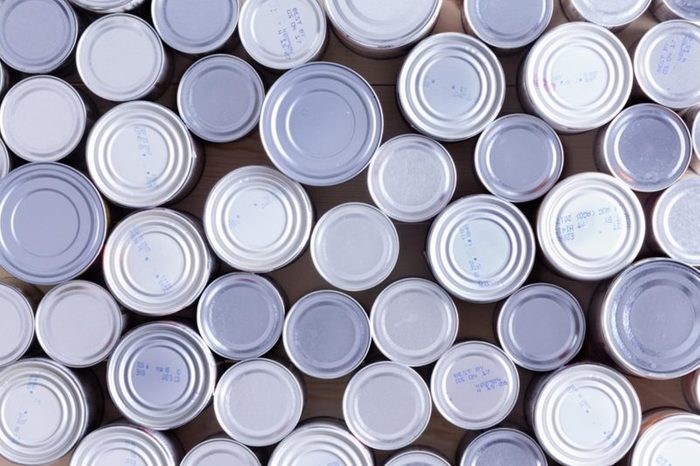
Canned foods
Although the food itself might be healthy, the can it comes in could make it one of a few cancer-causing foods because many cans are lined with bisphenol, according to Anton Bilchik, MD, PhD, professor of surgery and chief of gastrointestinal research at John Wayne Cancer Institute at Providence Saint John’s Health Center in Santa Monica, CA. “It’s a preservative which has shown to be carcinogenic in animals,” he explains. Bisphenol, also known as BPA, is linked to breast and prostate cancers. A recent study from the Environmental Defense Canada analyzed 200 food cans in the United States and found that nearly two-thirds of them tested positive for BPA. But BPA is on its way out so it’s possible to buy BPA-free cans.
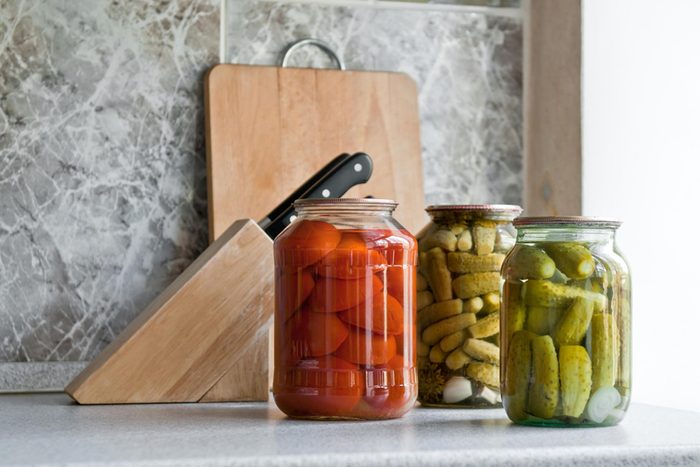
Pickled foods
These foods contain several preservatives and nitrates that can be carcinogenic, Dr. Bilchik says. Specifically, consuming large amounts of pickled foods increases your risk for stomach and esophageal cancers, as well as thyroid and ovarian cancers in some women. These are the 6 silent symptoms of colon cancer you might be missing.
High-salt foods
There are a few reasons to avoid foods with a high salt volume, according to Victoria Manax, MD, the chief medical officer at the Pancreatic Cancer Action Network and a trained oncologist. Too much salt leads to high blood pressure and has a high association with a greater risk of certain cancers, according to Dr. Manax. These include cancers of the stomach, nose, throat, and pancreas. “Individuals who are most at risk for developing health-related issues due to a ‘salty’ diet include people over the age of 50 and people with diabetes,” she says. “All of these risk factors also mirror some of the risk factors associated with pancreatic cancer.” Plus, a high salt intake causes other health issues such as cardiovascular disease, osteoporosis, and obesity—another risk factor for many cancers.
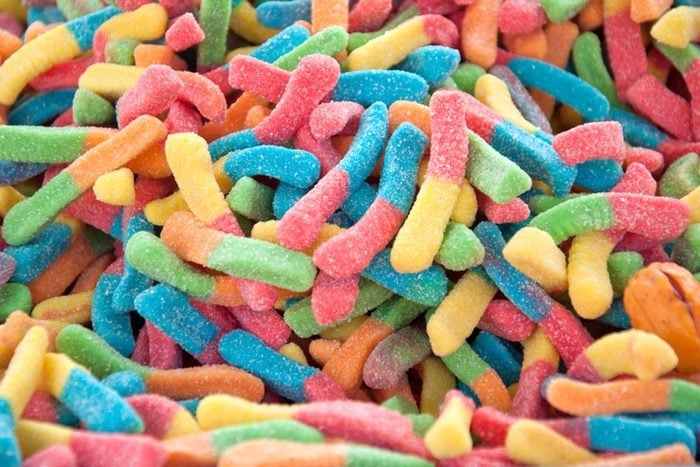
Artificial flavors
“Artificial flavors that are recently banned by the FDA but have been around a long time have been linked to a lot of health disorders, including cancer,” says Maryam Nemati Shafaee, MD, assistant professor in the Dan L. Duncan Comprehensive Cancer Center at Baylor College of Medicine in Houston, TX. The FDA is specifically removing seven synthetic flavoring substances that caused cancer in laboratory animals. That said, these substances are typically used in very small amounts in U.S. foods, resulting in low-level exposure and risk. Next, check out these 30 simple ways you can prevent cancer.

